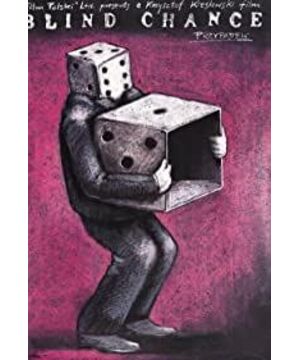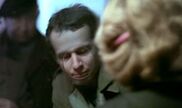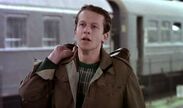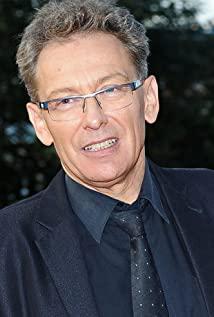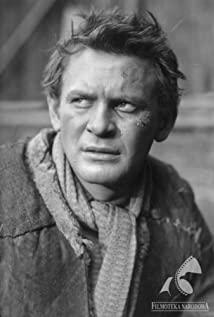, In this film, it is considered to be a socio-political and metaphysical level. What is more worthy of discussion is the socio-political level. After all, the Tao is the Tao, the non-constant Tao, the name can be famous, and it is very famous. Many people praised Kieslowski's filters and pessimism, which reflected the turmoil and darkness of Polish society during the socialist period, etc. I always feel that it is too unrealistic to say this. Slovsky's films have a very clear social orientation and historical background (worker strikes, underground movements, fleeing from Eastern Europe), especially during the Polish period, just like the works of Wang Xiaobo and Lou Ye, Wang Xiaobo saw the founding of the country. After the cultural catastrophe, when I was a child, I saw the Cultural Revolution beat, smashed, looted and burned, and young people went to Yunnan to jump in line; Lou Ye grew up in the early days of reform, and saw the great changes in China unseen in a century, and saw the moral bankruptcy of the Chinese people. It is believed that the history of these real happenings, social events are less discussed, and absurdity, existential nothingness, meaninglessness, fatalism, and pessimism are discussed more. Back to the topic, Kieslowski is also an exiled intellectual, a member of many "black scarves" during the international communist movement, the Polish poet Milosz, and Kie also went to Paris later, Prague Spring A group of Czech intellectuals and artists, Milos Forman, who shot "Flying Over the Cuckoo's Nest", Milan Kundera, Pekingese Bei Dao, Russian-American Nabokov, and the thieves who are contrary to mainstream ideology. those who. The unique perspectives of these exiled intellectuals are worth thinking about. Individual creators from the dual perspectives of two systems, perspectives, cultural soil, and social environment, what is the world like from their detached and outside perspective? , what the work will look like. Reading such a sentence that exiles "exile is to live a life outside the accustomed order, it is nomadic and decentralized", it should be very current in this "Wall Age". However, watching the movies of various countries in the socialist period is still very bad. The characters in "Song of Opportunity" care a lot about whether they really believe in communism or God. This may have something to do with the religious background of Europe. In China during this period In the movies people don't talk about it, and it's not like the "Song of Opportunity" where people run underground universities, talk to superiors about whether our beliefs are correct, whether our leaders are reliable, and compare sex in Asia and Eastern Europe. It’s completely different. The traditional Chinese culture of talking about sex and discoloration has led to the lack of sex in many movies, while the movies of those exiled intellectuals in Eastern Europe are completely different scenes, open, natural, and even a little over the top Zhou Kanyi's film review wrote "One Flew Over the Cuckoo's Nest" saying that "the two means by which ordinary people resist authority are sex and death", so we see Kier's Polish period works. There are many murders, suicides, voyeurs, and a lot of sexual scenes in the film. This is a non-political way of resistance for ordinary people, but in Furong Town, there will also be such a plot: the display of sex, so it is famous in film history, Chinese people's The way may still be the disgust of death and the thirst for life of "living, living like a dog", and looking at the works of masters like Tarkovsky is completely another realm, the confusion of European intellectuals after the war Loss, reflection and questioning of faith and God, metaphysical loss and pessimism, this may be a suitable place to talk about metaphysics, existentialism, and religious belief. Let's talk about this work again, Song of Opportunity, Witek's triple life, three life experiences, and three choices: whether to get in the car, whether to join the party, or whether to believe in God. What touched me the most was the first paragraph. Witek, the kid from Lodz, caught up with the train, completed the test of the organization, joined the Polish Communist Party, became a materialist and a Marxist, met his first love, and saw that everything was on the right track. As a result, the leader made a whistleblower, the underground party girlfriend was taken away by the secret police, and the two broke up because of their political identities. When Witek boarded the plane, he thought I would fuck up and start a second life... This life show The point is that when individual love encounters totalitarian experiences, I am reluctant to always talk about grand things. Grand things are deceptive. For example, the predicament people are facing today is totalitarianism and consumerism. A series of moral anxiety problems, and China has also entered the "Perverted Killer Period". In the 49-78 crackdown stage, it was institutionalized that people hurt each other. From 1980 to the beginning of 2000, it was the murder of the authoritarian period, robbers, thugs, and passionate murder. Now, after 2010, China's economy has been taking off for 30 years. The collective problem of society is a mental and psychological problem, so there have been many perverted killers, online fraud groups, and premeditated murders. Some are similar to the 70-80 years of American society, the "post-beat generation" after the hippie movement. (You can refer to David Fincher's work Mind Hunter), when an individual encounters collective sexual violence, what will happen to the individual's fate? Is this a predetermined and accidental decision? When talking about love during the Spring Festival Gala, Lou Ye answered a question like this: "Q: Is "The Evening Drunk in the Spring Breeze" a pure presentation of a love ecology? Lou Ye: No, love does not exist purely, it is always related to its surroundings Environments such as politics, society, daily life, etc. are directly related, so you can't cut off these relationships and simply talk about love." Lou Ye likes Kie, their understanding of love is similar, there is no pure love, at least It didn't exist after 1900. two more The first point is surveillance-surveillance control. Keille used to make documentaries. A short film "Station" in 1980 repeatedly shot the surveillance cameras and surveillance images of the station. Surveillance was also filmed in Song of Opportunity. Surveillance is a symbol of a totalitarian society. The second is that Kie is a complete author and director, and some of his little hobbies and unique experiences are often repeated in the movie, the boy who dropped the ball in the song of opportunity, played with ropes on the stairs, the door was full of milk bottles, and in love The short film also has this plot. In "Blue", the boy playing the azimuth ball and witnessing the scene of the car accident finally talk about Keye's metaphysics. The ending of the song of opportunity is very pessimistic. When the plane crashed, Keye also said that he was a pessimist. As Dai Jinhua said: "His works are rich in politics, but they are never about politics. Political propositions evolve into personal and fatalistic situations in Kieslowski's works.", he His growth background and choice of expression made him a guy with a tendency to despair, pessimism, predestination and accidental determinism. After all, Kie also took the Lodz Film Academy three or four times. How can such a difficult suffering make people optimistic? Ah, Hu Bo has also been admitted to the Beijing Film Academy for three years, and he has also been made sad and melancholy. However, Chier later went to France, and Hu Bo was still in the wall. Chier went to a peaceful and comfortable Paris, which is suitable for creation, and it was not so sad. Facing the identity dilemma of a stranger, he always said that he was a local The director of the film, came to Paris, went to Poland, shot three colors from the perspective of bystanders, and explored some denationalized and more universal values of "freedom, equality and fraternity" motifs. I may not be able to understand that kind of identity anxiety now. Although I am an exile, outside the mainstream narrative and ideologically displaced, I am still here, but I can somewhat empathize with Bei Dao and return home after 13 years. A paragraph written in "The Gates of the City" "Beijing has changed beyond recognition, it is difficult to identify" For personal, fatalistic situations. ", his growth background and choice of expression made him a guy with a tendency to despair, pessimism, predestination and accidental determinism. After all, Kie also took the Lodz Film School three or four times. Be optimistic, Hu Bo also took the Beijing Film Academy for three years, and he was also made sad and melancholy. However, Keille ran to France later, Hu Bo still stayed in the wall, and Keyer ran to peace and comfort, suitable for creation Paris is no longer so sad. Faced with the identity dilemma of a foreigner, he has always said that he is a local director. He came to Paris, went to Poland, shot three colors from the perspective of a bystander, discussed some denationalization, and more The motif of the universal value of "liberty, equality and fraternity". I may not be able to understand that kind of identity anxiety. Although I am an exile, outside the mainstream narrative and ideologically displaced, I am still here. But I can empathize with a bit of Bei Dao's words in "The Gates of the City" when he returned home after 13 years, "Beijing has changed beyond recognition, it is difficult to identify." For personal, fatalistic situations. ", his growth background and choice of expression made him a guy with a tendency to despair, pessimism, predestination and accidental determinism. After all, Kie also took the Lodz Film School three or four times. Be optimistic, Hu Bo also took the Beijing Film Academy for three years, and he was also made sad and melancholy. However, Keille ran to France later, Hu Bo still stayed in the wall, and Keyer ran to peace and comfort, suitable for creation Paris is no longer so sad. Faced with the identity dilemma of a foreigner, he has always said that he is a local director. He came to Paris, went to Poland, shot three colors from the perspective of a bystander, discussed some denationalization, and more The motif of the universal value of "liberty, equality and fraternity". I may not be able to understand that kind of identity anxiety. Although I am an exile, outside the mainstream narrative and ideologically displaced, I am still here. But I can empathize with a bit of Bei Dao's words in "The Gates of the City" when he returned home after 13 years, "Beijing has changed beyond recognition, it is difficult to identify."
View more about Blind Chance reviews


